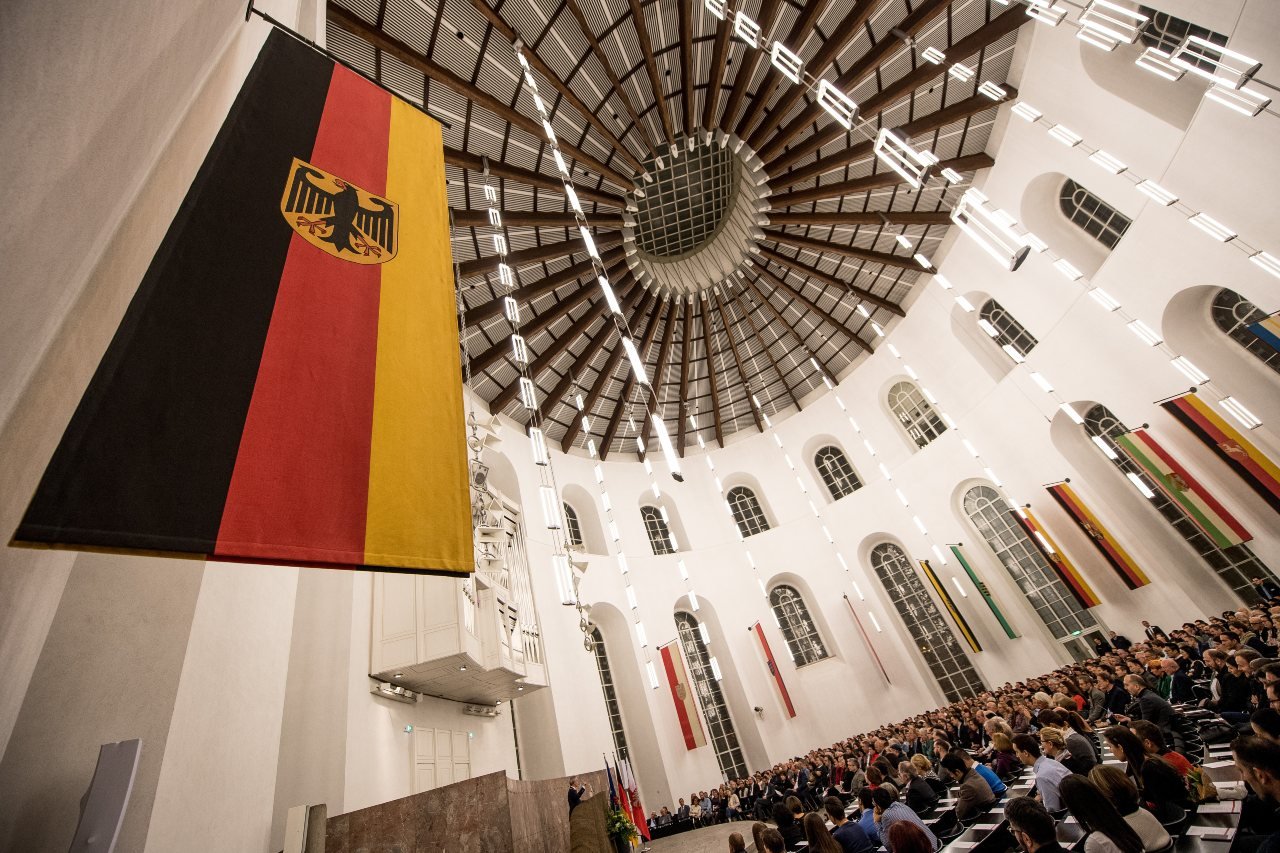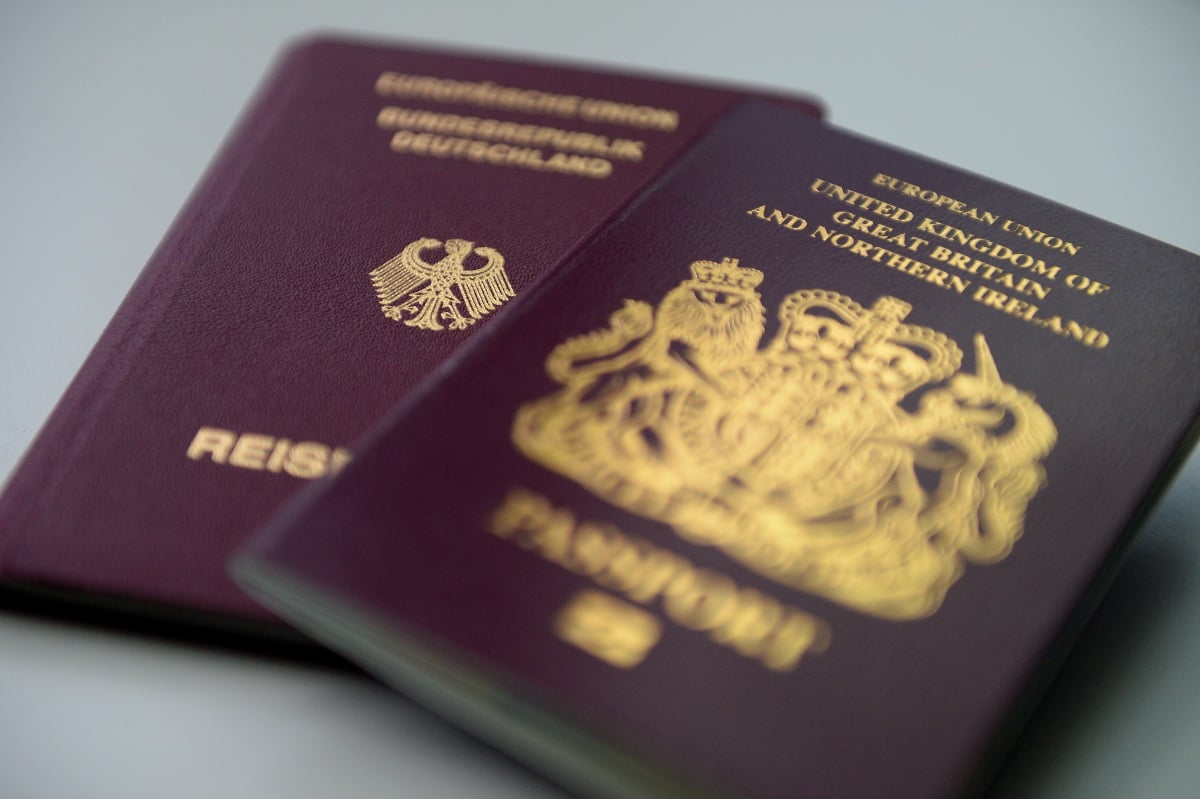On June 23rd, 2016, when the UK voted narrowly to leave the EU by 52 to 48 percent, the result of the referendum came as a surprise to pretty much everyone.
For Brits living in Germany, the shock vote opened up a period of uncertainty and sent the number of Brits applying for citizenship soaring.
According to a Berlin Social Science Centre (BWI) study authored by Daniel Tetlow and Dr. Daniel Auer, the numbers of UK citizens becoming German spiked by 2,000 percent in the aftermath of the Brexit decision.
In previous years, citizenship applications from Brits had been in the low- to mid-triple digits, with just 256 UK citizens naturalising as German in 2010. But in 2016 alone, naturalisations jumped to 2,865, almost tripling to 7,493 the subsequent year and 6,640 the year after.
During this period in the run-up to Brexit, there was immense uncertainty about the rights of Brits in the EU. As negotiators thrashed out the Withdrawal Agreement, it was unclear which residence rights would be granted to UK citizens in Germany, whether their qualifications would be recognised and what would happen to their free movement rights throughout the EU.
READ ALSO: It's five years since Brexit but problems lie ahead for Brits in Europe
At the same time, Brits who had been in Germany for at least six years had a brief window to apply for citizenship and keep their UK passports. This window was open until the end of the Brexit transition period, when free movement ended on January 1st, 2021.
Though many people had already left behind their lives in the UK at that point, the BIW study suggests that Brexit was a huge motivator for this group of Brits to try and become German.
"Despite Brexit not being the cause of their original migration decision, a remarkable 90 percent of respondents with or applying for dual citizenship reported that Brexit was the dominant reason for their application and 74 percent said they would, or would consider giving up their British citizenship if they had to," the authors of the study explained.
Due to Germany's previous rules forbidding non-EU citizens from obtaining dual nationality, Brits who were able to apply for naturalisation before the cut-off date were able to keep both passports, while those applying afterwards faced a heart-wrenching choice.
'A really big deal'
Towards the end of the transition period, several British citizens spoke to The Local about the turmoil they faced in making a decision on whether to become German and give up their British citizenship.
“You don't know how life is going to change,” Berlin resident Pete Carvill said at the time. “I don't know if my parents are going to need me to come home or if I'm going to get offered a job back in the UK or if I might decide to raise the kids closer to family – these are all things that can happen.”
READ ALSO: Thousands of Britons still moving to EU countries despite Brexit
Meanwhile Sarah, who lives in Hannover, spoke of happy childhood memories of living in Germany as a child and her regrets of not moving back to the country sooner from the UK - a move that would have allowed her to gain dual nationality. At the time, she described the prospect of renouncing her British citizenship as "a really big deal".
Others attempted to find ways around the problem by submitting their applications early - in some cases with suprising success.

For those who were able to get German citizenship, however, the choice appeared to be a simple one.
According to Daniel Tetlow, co-founder of citizens' rights campaign group British in Germany and author of the 'Brexit, uncertainty, and migration decisions' study, the rush to gain German citizenship was fuelled by the right to dual nationality.
In 2019 - the year before the end of the Brexit transition - the number of Brits becoming German more than doubled from 6,640 to 14,600. This dropped off sharply to 4,930 the following year - the year Britain officially left the EU and kicked off its 11-month transition.
Over the next three years, it tailored off further, with 4,570 Brits naturalising in 2021, 2,315 in 2022 and just 1,310 in 2023.
"The breaks were put on after 2020 as most Brits didn’t want to have to give up their British citizenship," Tetlow explained.
READ ALSO: How can Brits visit or move to Germany post-Brexit?
Due to long delays at immigration offices, it's hard to say exactly how many people applied after the cut-off date and who simply had to wait years for citizenship.
However, the BIW study estimated that around 60,000 Brits were set to be naturalised as German by 2021 - around half of the total 120,000 that were registered in the country at the time.
New routes to dual citizenship
On June 26th, 2024, Germany's landmark citizenship reform marked another sea change for British citizens, reopening their route to dual nationality.
The new bill gave foreigners universal rights to hold multiple nationalities, as well as shortening the years of residence needs for citizenship.
READ ALSO: INTERVIEW - 'A lot of people think Brexit is done, but it's not for Brits in Europe'
Though no national naturalisation stats are available for 2024 to determine impact of the new law, Brits who spoke to The Local described their relief at the change.
"This is very good news for all the immigrants who came here for betterment of their lives," said UK citizen Satya Kasindula. "Especially for all those people who are impacted by Brexit regulations.”
Campaign group British in Germany also welcomed the reform.
"British in Germany supports the new law that has loosened the dual citizenship rules in Germany and gives many migrants, including British citizens post-Brexit, the opportunity to contribute and to benefit from the lifelong advantages of being both a German and an EU citizen," said Tetlow.
"We expect to see more Brits become neue Deutsche mit britischem Migrationshintergrund this year."

As BiG predicted, there are already signs of a general uptick in citizenship applications from people of all nationalities.
In a survey of 25 German cities by the newspaper Welt am Sonntag, for example, local authorities reported a 50 percent jump in the number of people applying for citizenship since the introduction of the new law.
"Now we’re seeing a resurgence in the numbers due in part to the dual citizenship law that was passed in the Bundestag in June 2024," said Tetlow.
"Stats from naturalisation offices in Berlin show a big hike in the number of naturalisations in 2024, with 600 Berliners naturalised in the first quarter, nearly 5.000 in the second and over 8.000 in the third quarter of last year. The numbers speak for themselves."
Uniquely for Brits, the reform reopened the door to a number of chances that were lost after Brexit: most notably the chance to regain EU citizenship and enjoy dual nationality rights.
For Simon, 72, who applied for citizenship under the new law, his motivation for doing so was one shared with thousands of Brits across Germany.
Naturalising as German, he said, was about "becoming European again".

Comments